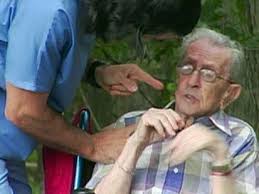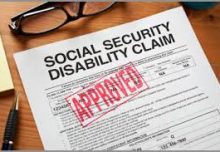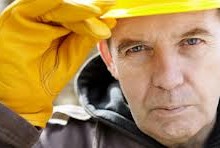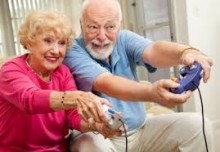 If you see something, say something. We have all heard this about everything from neighborhood watch programs to announcements in airports…that is, back when people actually took flights to somewhere. But what if you can’t see “something”… something like elder abuse. Another casualty of this COVID quarantine is the blinders it places on all of us who have looked out for or looked after an older loved one. We cannot really get anywhere close to those in senior living communities, and for seniors living less independently, it is even worse.
If you see something, say something. We have all heard this about everything from neighborhood watch programs to announcements in airports…that is, back when people actually took flights to somewhere. But what if you can’t see “something”… something like elder abuse. Another casualty of this COVID quarantine is the blinders it places on all of us who have looked out for or looked after an older loved one. We cannot really get anywhere close to those in senior living communities, and for seniors living less independently, it is even worse.
You don’t have to be a caregiver to an older loved one to be “looking out” for their well-being. Let me offer you a number of tips for preventing elder abuse as well as intervening when elder abuse is suspected:
Prevention:
- Power of Attorney – have the difficult discussions with your older friend or loved one about selecting someone(s) to be POA for health care and for finance. Sure it’s awkward and personal, but not having protection in place is what causes financial or health crises.
- Stay Connected – call or email your loved one regularly. And if they have a laptop or access to one, make sure they learn how ZOOM can make a personal contact just a few clicks away.
- Know their Caregiver – make sure you know your loved one’s caregivers…by name and more. If a caregiver knows that someone is watching, they will be on their best behavior.
There are more steps that can be taken if you are family so that you have help to prevent breeches of security or fraud.
Intervention:
- Neglect – We find that self-neglect actually is far more common than caregiver neglect, so be as informed as you can about your loved one’s food and water intake as well as their medical care and living conditions.
- Mandatory Reporters – front-line workers like doctors or nurses are mandatory reporters, that is they have to report suspicious behavior or abuse to authorities. Be sure to ask them what they are seeing so that it does get reported.
- More Connected – I mentioned calls, messages and ZOOM, but there’s more. Inquire about fall detectors or medication reminders if you have reason to believe your loved one may be at risk.
- Follow-Through – Don’t be satisfied with just paying attention. Make it a point to take any concerns to people in charge. If your loved one is not in a facility, find out who you community ombudsperson is in order to get action. When in doubt, call 911.
- Take it Higher – If you are unsure who can help locally, there is a federal agency who can help you find help: the Eldercare Locator(800-677-1116), a public service of the U.S. Administration on Aging. There’s also Adult Protective Services.
And it’s better to be wrong in sounding an alarm than in not speaking up when something is really wrong. If you suspect something, say something!
Charlotte Bishop is an Aging Life Care Advisor, Geriatric Care Manager and founder of Creative Care Management, certified professionals who are geriatric advocates, resources, counselors and friends to older adults and their families in metropolitan Chicago. She also is the co-author of How Do I Know You? A Caregiver’s Lifesaver for Dealing with Dementia.







